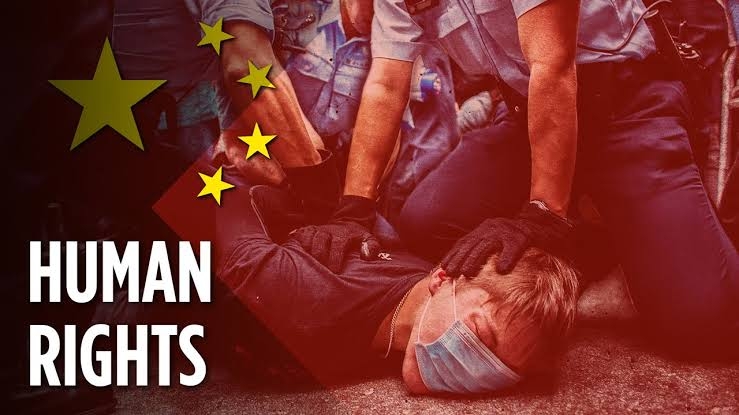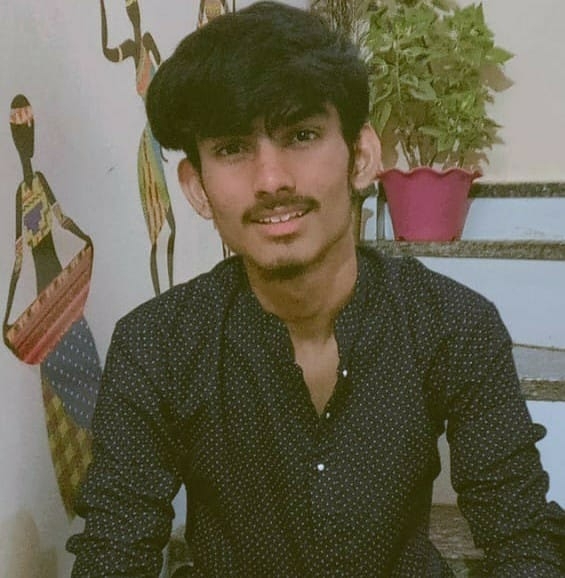Human Rights Violation: Under the umbrella of equality — Communism
The Chinese government has long kept tight reins on both traditional and new media to avoid potential subversion of its authority. Its tactics often entail strict media controls using monitoring systems and firewalls, shuttering publications or websites, and jailing dissident journalists, bloggers, and activists.

This is the first article in a series of five articles where we delve into a comprehensive analysis of human rights abuses occurring within communist dictatorships and Islamic regimes. In this article, we shed light on the impact of communist dictatorship, primarily in China, where we examine how common people are affected and the multifaceted ways in which they experience exploitation, encompassing economic, social, cultural, and psychological aspects. Through this article series we'll uncover the realities and shed light on human rights violations in different contexts.
China has a long history of human right violation and it can be traced back to the early years of the People’s Republic of China, when the Communist Party with a view of consolidating its power, launched a series of political campaigns with an aim of suppressing dissension and dissenter / rebels.
In the 1950s and 1960s, the Chinese government carried out a series of political cleansing campaign, which included Anti-Rightist Campaign and the cultural revolution, resulting in imprisonment, torture, and execution of millions of people. Ever since China has been facing criticisms for its human right record, political repression, censorship, suppression and curb on freedom of expression and assembly.
Blemishing of the fundamental rights, right to life and liberty, security, freedom from torture, slavery, illogical and random detention, right to justice, freedom of expression, assembly and association, right to education, healthcare, right to work and right to participate in cultural life.
The Chinese government has long kept tight reins on both traditional and new media to avoid potential subversion of its authority. Its tactics often entail strict media controls using monitoring systems and firewalls, shuttering publications or websites, and jailing dissident journalists, bloggers, and activists.
Google’s battle with the Chinese government over internet censorship and the Norwegian Nobel Committee’s awarding of the 2010 Peace Prize to jailed Chinese activist Liu Xiaobo have also increased international attention to censorship issues. At the same time, the country’s burgeoning economy relies on the web for growth, and experts say the growing need for internet freedom is testing the regime’s control.
Media Censorship in independent China
China's constitution affords its citizens freedom of speech and press, but the opacity of Chinese media regulations allows authorities to crack down on news stories by claiming that they expose state secrets and endanger the country.
The definition of state secrets in China remains vague, facilitating censorship of any information that authorities deem harmful to their political or economic interests.
CFR Senior Fellow Elizabeth C. Economy says the Chinese government is in a state of "schizophrenia" about media policy as it "goes back and forth, testing the line, knowing they need press freedom and the information it provides, but worried about opening the door to the type of freedoms that could lead to the regime's downfall."
In 2016, Freedom House ranked China last for the second consecutive year out of sixty- five countries that represent 88 percent of the world’s internet users. The France-based watchdog group Reporters Without Borders ranked China 176 out of 180 countries in its 2016 worldwide index of press freedom.
Persecution of citizens for religious beliefs
The Chinese government is waging/has waged an assault on religious minorities. Millions of Christians, Muslims and Buddhists are being subjected to arbitrary detention, forced labor , torture and the destruction of religious buildings , books and artefacts.
Oppression of religious groups is widespread throughout China. Since 2014, Uyghur Muslims in the Xinjiang Uyghur Autonomous Region have been subjected to ongoing detention in internment camps, forced labor, forced sterilization, suppression of religious practices, “re-education,” and other serious human rights abuses.
The treatment of the Uyghurs is so severe and targeted that several countries, including the United States, have described the situation as genocide, and the UN has stated that the treatment may amount to crimes against humanity.
The Chinese government also specifically targets Buddhism and Taoism
In Tibet, believers live under extensive surveillance and limits are placed on their travel and free communication. Monks and practitioners are routinely detained on terrorism charges; the Dalai Lama continues to live in exile; and altars to religious figures are replaced with shrines to the President.
People are not permitted to participate in religious ceremonies in groups larger than three people, and religious temples and other sites have been placed under heavy state- controlled security.
Most recently, Christianity has found itself under attack by the Chinese government. Christianity is a growing religion in China and both Catholics and Protestants have been ordered to renounce their faith and have faced the destruction of crosses and Bibles, the demolition of churches, and the arrest of pastors and church attendees.
Churches that are permitted to remain open must install high-tech facial-recognition cameras within their buildings so that the government can keep track of who is attending. The Bible is being “retranslated” to establish a “correct understanding” of the text in line with Chinese culture.
While China has engaged in religious suppression for decades, these activities have become more widespread and severe in recent years.
Sinicization: Omitting religions
One significant cause of the increased repression of religion in China is a change in the government’s policy regarding religion. In April 2016, Xi Jinping, the President of China and General Secretary of the Chinese Communist Party (CCP), declared that religions must be Sinicized. Sinicization is the process of shaping ideas, including religious and cultural practices to conform with CCP objectives and values.
While religions have been incorporated into Chinese society over time, the government has decided that this process has not been sufficiently tied to the CCP’s interests. The result has been an “authoritarian assault on faith” with all organized religions affected but “Christian and Muslim communities bear the brunt.”
Deteriorated Family Planning
China famously introduced a one-child policy in 1979. Campaigners said that it led to forced abortions, female infanticide and a gender imbalance in the country. There has been a formal easing of the policy but rights groups say that women’s reproductive rights are still under heavy control of the state.
Lack of land rights
All land is effectively owned by the government and farmers are allocated areas for set amounts of time. Villagers often accuse local officials of taking their land without giving them any compensation. And of using violent tactics to quash their protests.
Secrecy on Tiananmen Square
The infamous Tiananmen Square Massacre, in which thousands of students and innocent citizens were gunned down for practicing their rights. And it has been 30 plus years since the massacre and conflicts erupted.
Activists say that calls for a proper investigation into events on 4 June 1989 have been ignored. Human Rights Watch says that discussions about it remained censored and that the truth of what happened is withheld from people in China.
Conclusion
Coercive population control through forced abortion, forced sterilization, and involuntary implantation of birth control;
The detention of more than one million Uyghurs, ethnic Kazakhs, ethnic Kyrgyz, and members of other Muslim minority groups in internment camps;
Forced labor in facilities nearby or affiliated with the internment camps;
The destruction and closure of mosques and other religious sites, prevention of youths from participating in religious activities, forced political indoctrination or “re-education”.
This is what China is under Communism, believed to formed on the rudiments of equality.

contemplating society and politics through cultures

